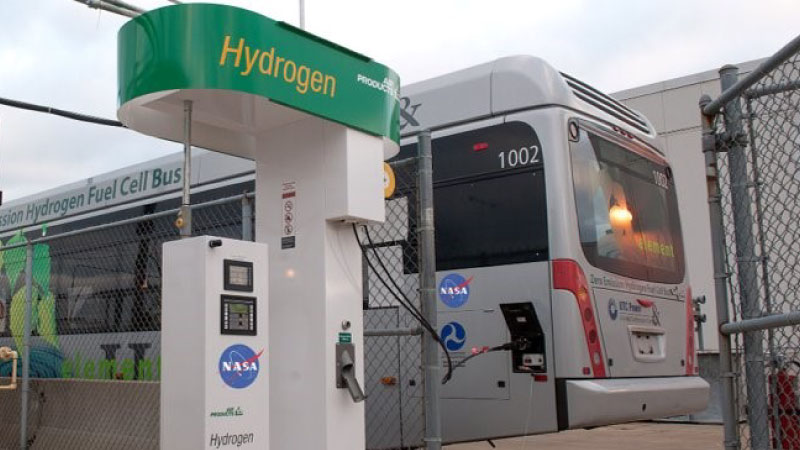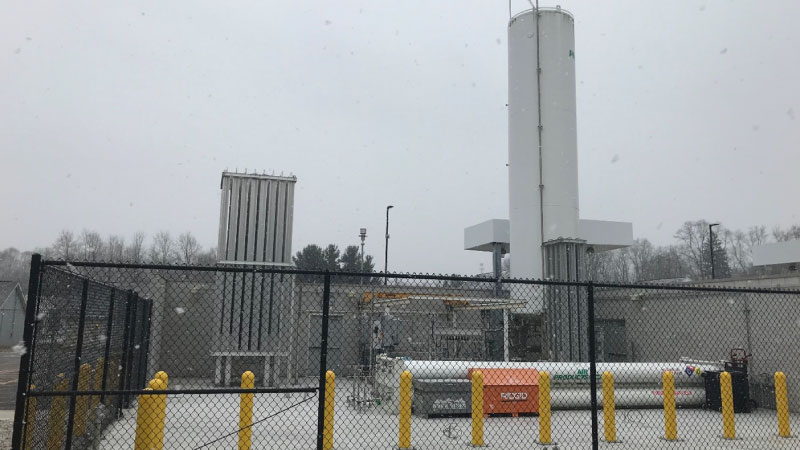Investing in our planet: How safe and sustainable transportation is driving a greener future
Following our recent coverage on green infrastructure, changes to the EV value chain, and current developments to the sustainable battery life cycle, it’s also important to look at the promising role that hydrogen fuel cell electric vehicles are starting to play in the sustainable mass transit market. Hydrogen has the highest energy density by weight of any fuel and is versatile in its applications, and provides clean combustion, enabling a zero-emission mass transit option in urban areas.
While battery electric vehicles and hybrid electric vehicles have been around for some time and are rightfully becoming much more commonplace, their practicality for use in a large-scale mass transit has a handful of limitations including range, extended charging time, and extensive infrastructure requirements. This is where hydrogen fuel cell electric vehicles can offer several advantages.
What is a fuel cell electric vehicle and what are its advantages?
In its simplest form, fuel cell electric vehicles are electric vehicles powered by hydrogen. Hydrogen is stored in a sealed tank, becoming the fuel used to generate power. The energy released is stored in a lower capacity battery than an electric vehicle.

Ultimately, hydrogen fuel offers a similar green solution to battery electric vehicles with virtually no harmful emissions, but there are a few tangible advantages to hydrogen-fueled vehicles—most notably when it comes to fueling and charging.
To look at mass transit, a major advantage to fuel-cell electric buses is that they can be charged within five minutes; compared to an electric bus that needs four to six hours of charging time per day, a hydrogen-fueled bus needs to use dispensers for only 20 minutes a day. In other words, fueling time is about 5% of the time required to charge an electric bus. When we multiply this time savings across an entire fleet (Toronto, for example, is currently running 59 electric buses2), the savings on time and resources is exponential.

Not only can hydrogen-fueled electric buses refuel in the same amount of time it takes to refuel diesel buses, but they also possess the same travel range at around 450km per charge. This allows transit agencies to continue operating services currently offered by diesel buses without frequent and lengthy interruptions for charging.
While the mid-life care and overhaul of hydrogen-fueled electric vehicles has yet to be explored—leaving us with a grey area in terms of projected cost of maintenance and potential replacement—it’s worth noting that in side-by-side comparisons, fuel cell buses have demonstrated lower maintenance costs compared to electric buses.
Are hydrogen-fueled electric vehicles likely to become mainstream?
Although hydrogen-fueled electric vehicles provide several advantages over battery-powered, the necessary infrastructure to support their implementation still needs to be developed. There are currently fewer than 70 hydrogen fueling stations in North America, and production and distribution is not established in all geographic regions. Therefore, a supply chain similar to those established for fossil fuels needs to be established.
To initiate this type of infrastructure growth, the United States Department of Energy announced US$7 billion in funding to develop six to ten regional clean hydrogen hubs throughout the country3. In Canada, the Canadian Infrastructure Bank is currently helping municipalities and school boards accelerate electric bus purchases by providing loans to bus operators—an initiative that Hatch extensively reviewed and analyzed—leaving hydrogen-fueled vehicles as an area that still needs extensive comparison and piloting and demonstration studies in this region.
Hatch possesses world-class engineering capabilities across the full hydrogen and electric vehicle landscape. From pilot-scale to grid-scale, we are actively involved in the development of the hydrogen economy and in investing in the future of a greener, cleaner planet. Contact us to find out how Hatch is continuing to grow our portfolio of projects and how we can help you meet your net-zero goals.
1. EARTHDAY.ORGAnnounces Theme for Earth Day 2023: “Invest in Our Planet” - Earth Day
2. What cities can learn from the biggest battery-powered electric bus fleet in North America | CBC News
3. OCEDeXCHANGE: Funding Opportunity Exchange (energy.gov)

Daniel Lang, Ph.D.
Regional Director, Bus and Sustainable Transportation
Daniel Lang has 15 years of experience in vehicle, wayside infrastructure, systems engineering, and system safety aspects of bus, transit, and rail industries. He currently leads Hatch bus and sustainable transportation, which assists clients’ bus and paratransit vehicle engineering maintenance.

Josh Collins
Senior Consultant, Environment and Sustainability
Josh Collins has 20 years of experience as an environmental consultant focusing on delivering innovative solutions that achieve regulatory requirements while producing benefits for clients and the communities where they operate. He recently joined the growing Hatch Environment and Sustainability team to facilitate growth in the United States market.